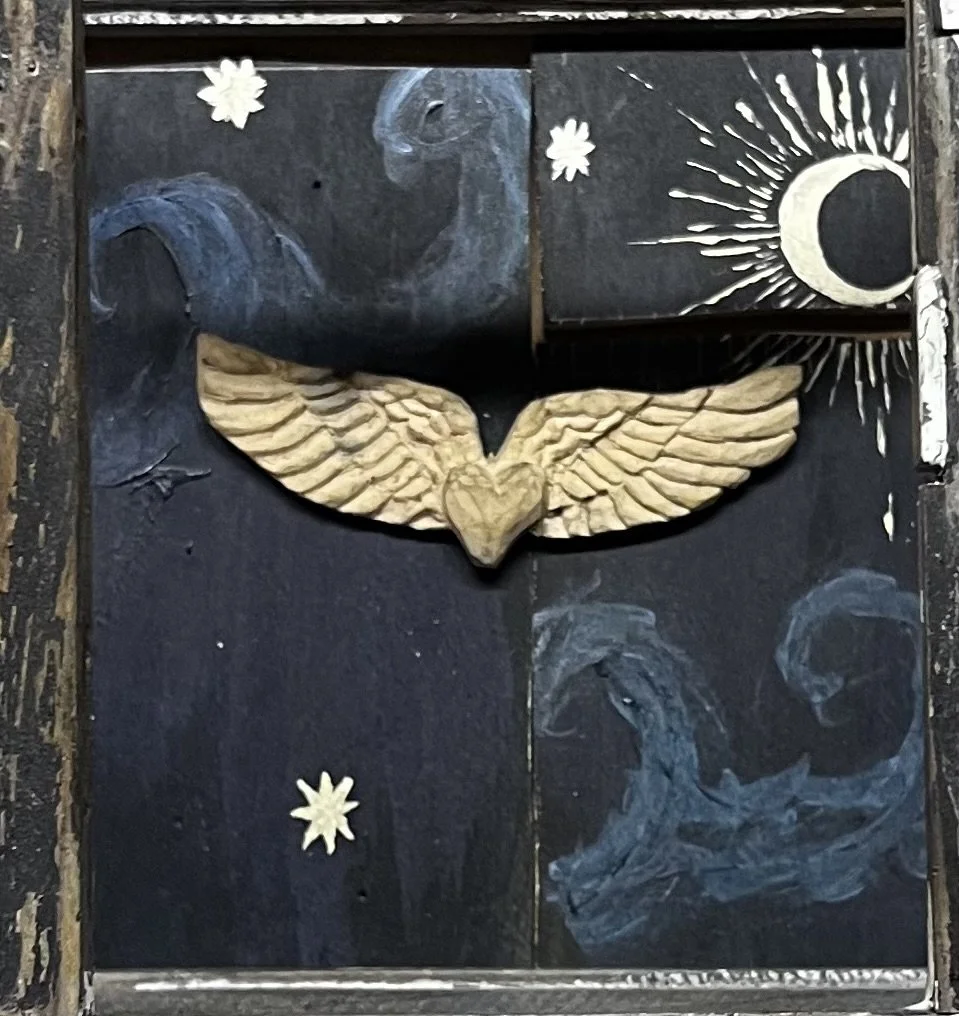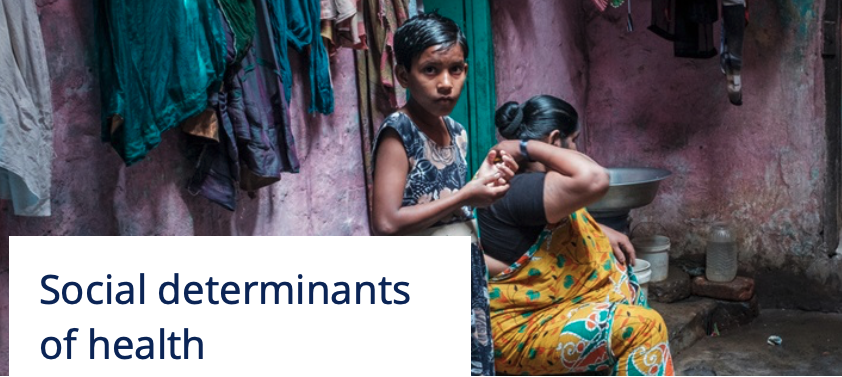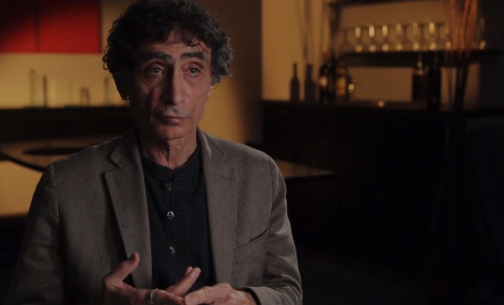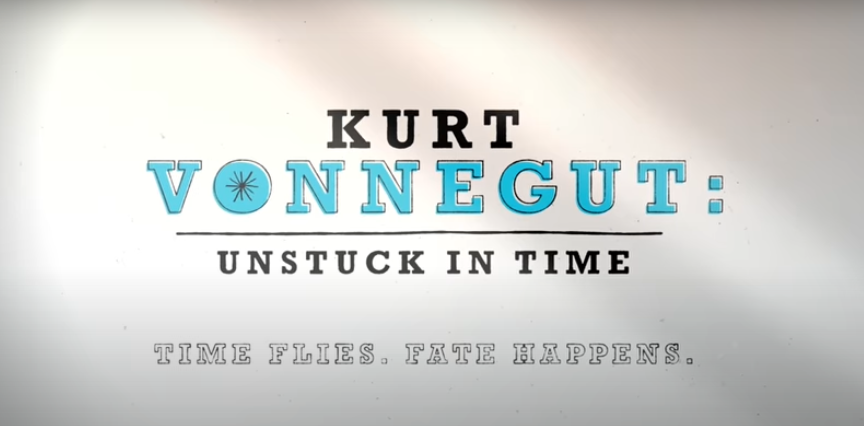How to thrive on the path to Insight
Do you know who you are?
This is a critical question for one’s ability to take agency in their career, their life, their world!
Many will, in response to this question, respond with their job title, hierarchical level within whatever organisation they currently are employed in, or even just their industry.
In life, each of us experiences different challenges. This could be in the form of our genetics, the traumas or privileges we’ve faced, the lessons we’ve been taught (or not) by our family, friends, and community - or even broader. And these challenges have deep impact on our wellbeing, and on our physical, mental, and emotional health.
When we look at health differentials between groups, we realise that between 30%-55% of the cause of health outcomes can be linked directly to the environment in which we live, our education, our social status, our financial wellbeing, our experienced traumas - these and other factors that make up the socio-economic determinants of health. (Read more at the World Health Organisation: Social Determinants of Health [here]).
Through our upbringing, and the path we’ve been born into, we were taught (either consciously or unconsciously) different approaches to use when we face the challenges we encounter.
Every individual learns how to deal with their unique life challenges differently. They could learn that a quick temper that rises to anger can help to protect them from further threats to their sense of ‘self’. Or they could learn various ways to escape the pain and/or the suffering of whatever it is that is bringing them the pain and/or suffering.
In fact, as you look at the various methods we humans use, many of the maladaptive behaviours (behaviours such as avoidance, withdrawal, passive-agresiveness, etc..) were, at one point, adaptive. In that we first used them to achieve some sense of release of suffering. We avoided the painful situation, we withdrew from the judgemental environment to protect our sense of self, or we developed a way to express our discomfort without being too aggressive to enable us to maintain a sense of agency.
We used a tool to help us address a challenge. That tool worked. But, because patterns of use cause an unconscious habit or pattern to become entrenched, these adaptive behavioural choices, became unconscious shackles which chained us to one way of being. They slowly became mal-adaptive. '
A brilliant article by Hungarian born Canadian physician Gabor Mate explores how the childhood acquisition of mal-adaptive behaviours (caused by social determinants of health) can impact on one’s adult health and wellbeing [here].
This research is fundamental, in my opinion, to the approaches one should take in how we build resilience, self-agency, and wellbeing into our lives, our systems, and our cultures.
Many other researchers are looking at how to do this, and have discovered that a large part of health and wellbeing can be improved through employing a variety of evidence based insightful tools; mental practices and frameworks that have been researched and proven effective for helping develop positive outcomes for individuals and groups alike.
One of these is the ‘Growth Mindset’ - a concept of one’s implicit view of where ability and self-agency come from, which was researched by the American psychologist and Stanford Professor, Dr Carol S. Dweck.
(an EXCELLENT paper by Dweck on this topic can be found [here])
Dweck’s premise is that a concentration on the superficial (‘look talented at all costs’) limits us, where a concentration on the deeper learning (‘learn! Learn! LEARN!’) helps to give us self-agency and through this, an ability to address and overcome the challenges we face.
All of these Insights rushed into my mind when I was recently asked by a friend what about my habit of scheduling time for me to ‘go to the shed and create’ can be understood as ‘a life lesson for us all’?
The answer? I suspect that the more we consciously practice with a tool, the more we learn about what it can do. The more we learn about what it can teach us. The more we learn about how we ‘are’ in relationship with these lessons of life.
I am reminded by a quote I recently read, attributed (although never verified) to one of my ‘friends on the shelf’ - American writer and humorist, survivor of WWII’s bombing of Dresden, (an experience from which is book ‘Slaughterhouse Five’ was written), Kurt Vonnegut:
When I was 15, I spent a month working on an archeological dig. I was talking to one of the archeologists one day, during our lunch break, and he asked those kinds of “getting to know you” questions you ask young people: Do you play sports? What’s your favourite subject? And I told him, ‘no, I don’t play any sports. I do theatre, I’m in choir, I play the violin and piano, I used to take art classes.’
And he went ‘WOW! That’s amazing!’
And I said, ‘Oh no, but I’m not any good at ANY of them.’
And he said something then, that I will never forget, and which absolutely blew my mind because no one had ever said anything like it to me before:
‘I don’t think being good at things is the point of doing them. I think you’ve got all these wonderful experiences with different skills, and that all teaches you things and makes you an interesting person, no matter how well you do them.’
And that honestly changed my life. Because I went from a failure, someone who hadn’t been talented enough at anything to excel, to someone who did things because I enjoyed them. I had been raised in such an achievement-oriented environment, so inundated with the myth of Talent, that I thought it was only worth doing things if you could ‘WIN’ at them.
For a deeply insightful documentary on Vonnegut, look up the 2021 released movie “Kurt Vonnegut: Unstuck in time”. Filmed across almost 40 years by his young friend and documentarian Robert Weide. It is inspirational, and deeply insightful!
Why do I go to the wood shed?
I go to the wood shed to create, to engage in a conscious practice of finding myself through the act of creation. It is not about ‘mastering’ the craft of wood carving, or sculpture, or even of carpentry or darts, or anything else I do in the shed… it is not about the craft at all, really. It is about learning. It is about finding parts of myself within the activity and moment that I am in… and habituating that practice to employ in my daily life - at work and/or with the family, and/or within those glorious moments of solitude.
I am hoping this post helps to inspire you too, to find your path of Insight, that enables you to find parts of yourself and use these to ‘learn, Learn, LEARN!’, and through this to thrive!
Feel free to reach out, I’d love to hear from you and see how we can work together to help you use the tools that will enable you to thrive on your path to insight.
Sincerely
James





